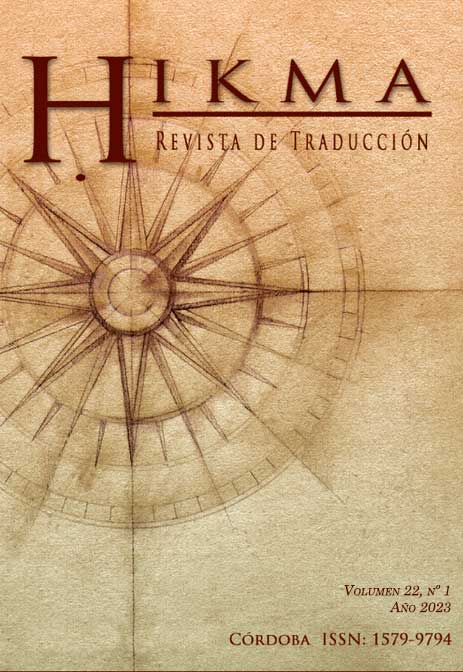Non-cooperative communicative situations and impartiality Interlinguistic and intercultural mediation with asylum seekers
Main Article Content
Abstract
This paper presents an overview of the dilemmas related to impartiality faced by interlinguistic and intercultural mediators involved in professional interviews with asylum seekers. It is common that, due to a lack of trust between interlocutors, these interactions are uncooperative. The data for this study are drawn from interviews with mediators and service providers who work with two NGOs and who are often involved in such interactions. Based on the data from the interviews, as well as from other work in this field, a description is given of the different types of situations in which mediators' interventions may be likely to benefit or harm one of the interlocutors. From a theoretical viewpoint, an alternative classification of the principles governing the communicative behaviour of mediators in this type of interaction is proposed. The data presented in this study seem to point to the convenience of considering impartiality not as just another principle of action, but as a determining factor when dealing with the dilemmas posed by the application of these principles.
Downloads
Article Details

This work is licensed under a Creative Commons Attribution-NonCommercial-ShareAlike 4.0 International License.
Authors who publish with this journal agree to the following terms:
1. Authors retain copyright and grant the journal right of first publication with the work simultaneously licensed under a Creative Commons Attribution License that allows others to share the work with an acknowledgement of the work's authorship and initial publication in this journal.
2. Authors are able to enter into separate, additional contractual arrangements for the non-exclusive distribution of the journal's published version of the work (e.g., post it to an institutional repository or publish it in a book), with an acknowledgement of its initial publication in this journal.
3. Authors are permitted and encouraged to post their work online (e.g., in institutional repositories or on their website) prior to and during the submission process, as it can lead to productive exchanges, as well as earlier and greater citation of published work (See The Effect of Open Access).

